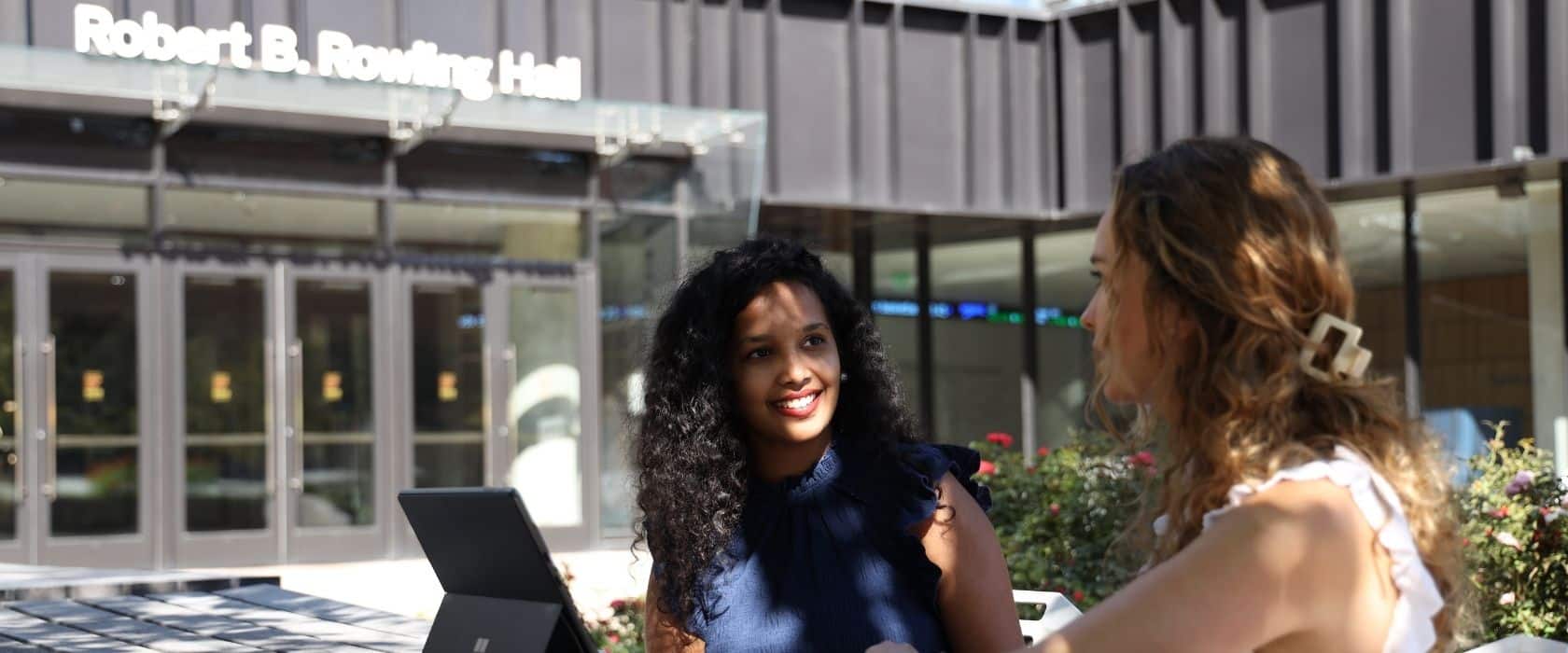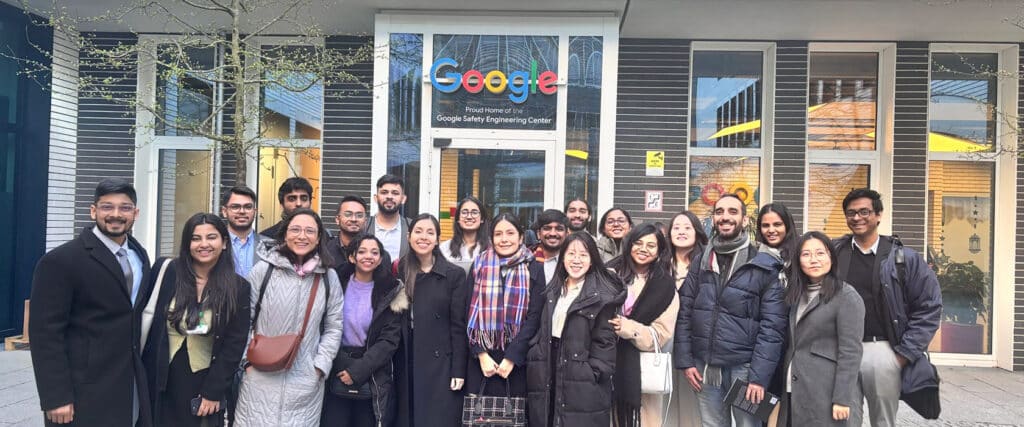Navigating Your Future: Insights into McCombs MBA Career Education
The McCombs MBA Career Education team at the University of Texas at Austin is deeply invested in the long-term success of its students. In a recent interview, Sarah Nathan, Managing Director of MBA Career Education and Coaching at the McCombs School of Business, shared valuable insights into their approach.
Their focus extends beyond immediate job placement and includes equipping students with skills for continuous career growth. You’re in an MBA program to learn crucial business fundamentals. In addition, McCombs also sees its role as teaching you how to navigate and advance your career throughout your professional life.
McCombs Understands the Evolving Landscape of MBA Career Education
McCombs recognizes that career education is a continuous journey. They are always seeking innovative ways to best serve their diverse student population.
Tailoring Coaching to Your Unique Needs
The Hildebrand MBA program boasts a variety of cohorts. These include full-time, working professional, and executive programs with different schedules and locations. Career coaching at McCombs is tailored to specific student needs and interests. Sarah explains, “We do think about it by program, but we also really think about unique student needs and how we can best serve all of our different students based on their background and their interests.” (2:01)
For instance, Executive MBA students might focus on executive compensation and negotiation. Entrepreneurial students and full-time students also show interest in this area. Consulting is another significant area of focus. The program also provides resources for international students in the full-time program. This helps them understand which companies offer sponsorship and will value their specific certifications. The McCombs Careers Education Team considers both the program format and the unique backgrounds and interests of each student.
Staying Ahead of Market Trends
Remaining current with market demands is essential. McCombs employs several strategies to achieve this. They leverage general resources and insights from higher education peers and industry organizations.
However, their most significant effort is made by connecting with employer partners. Sarah explains, “Over the summer, we meet with over a hundred of our top employer partners.” (2:37)
She goes on to add, “we ask them questions about what they’re looking for, what skills they’re looking for, how our students are doing, where they are really excelling [and] where we can spend more time in terms of preparing specific skill sets because they’re going to be important in the coming years.” (2:42)
Talking directly to partners gives them specific information about how market trends impact their MBA hiring, a valuable insight for the Careers Team.
Innovations in Career Programming
While numerous platforms and AI tools for resume revision exist, Sarah emphasizes, “What we found is there’s also no replacing that one-on-one interaction with your coach.” (3:29)
Each program has dedicated coaches who understand their students’ specific needs. Students are strongly encouraged to meet with their coaches to help them navigate the vast array of available resources, and the more they meet, the better their career outcomes.
Sarah revealed some remarkable data that shows that students who secured jobs sooner met with their career coaches significantly more often. She stresses, “Students who had a job at three months after graduation had met with their career coach an average of about six and a half times, whereas the students who didn’t have a job three months after graduation had only met with their career coaches about two and a half to three times.” (4:27)
Therefore, McCombs views tools as supplements to personalized coaching. Coaches are there to guide students in identifying the most beneficial resources.
Expanding Job Opportunities Through Employer Ties and Alumni Engagement
McCombs maintains constant communication with employer partners and adapts their approach based on market volatility. “We adapt our approach and our interactions with employers to match the market, so we’ve started to do a lot more proactive outreach,” Sarah notes. (5:40) When hiring surged, they streamlined processes to connect companies with students. During hiring slowdowns, they increased proactive outreach to past employers.
Alumni play a pivotal role in fostering connections. They actively engage their alumni to provide advice and opportunities to current students. “The people in the company who tend to be most engaged are alumni, and they want to bring in more McCombs’ alum; they want to be able to give back, so we do a lot of outreach through our alumni channels.” (6:03)
McCombs actively works to connect employers and alumni to maximize relationships and create new opportunities.
Measuring Success and Acting on Feedback
Student success is the primary metric for the career program’s effectiveness. This includes job placement rates, which influence school rankings. However, McCombs also values student satisfaction.
Sarah says, “We are successful when our students are successful.” (6:39) Beyond outcomes such as rankings and metrics, Sarah says they want graduates to find jobs they truly enjoy. “We also really care about student satisfaction not just, ‘did you get a job?’ but ‘did you get a job that you like, that you’re happy in, that you want to stay in for several years?’” (7:13)
Student feedback is actively sought out and acted upon. Sarah mentions that “we’re constantly asking for feedback whether it’s about a specific workshop, events, a coaching appointment, or overall in their experience with our staff.” (7:50)
They gather this data through surveys, direct conversations, and the employment of second-year students as peer career coaches. Peer coaches provide valuable insights into what works best for students. This constant dialogue allows for continuous improvement and a focus on impactful initiatives.
Navigating Market Disruptions and Supporting Alumni
Recent years have presented significant market volatility. Sarah recalls, “One of the things that we’ve seen as markets change is that students might come in thinking that they’re really interested in one area and then that part of the market takes a downturn, and all of a sudden they have to decide, ‘Do I still want to pursue it? Do I want to pivot? What would that look like?’” (9:08)
In times of disruption, one-on-one coaching becomes even more critical. Coaches help students navigate pivots, assess their skills, and manage the emotional challenges of uncertainty. They also provide support and motivation for students who remain committed to their original goals despite market shifts.
McCombs extends its support beyond graduation through the Alumni Career Management team. Alumni have access to dedicated full-time and part-time coaches for life, offering valuable assistance with career changes and job searches. “Once you become an alum of McCombs, you have career coaching for life,” Sarah says. (10:49)
This initiative keeps the alumni community strong and provides ongoing career resources.
What Makes McCombs Career Support Unique?
Students are often surprised by the level of career support they receive at McCombs. Sarah notes, “What students are most surprised by when they come into the program is the amount of support they get from career [services].” (12:02)
A recent graduate survey indicated that an impressive 78.7% found jobs through school-facilitated resources. (12:15)
According to Sarah, industry partners consistently highlight teamwork and collaboration as distinguishing characteristics of McCombs students. She recalls feedback she receives from employer partners, “It is almost always the same answer, it’s teamwork, collaboration, students who have really strong technical skills, but who can also join a team, communicate, [and] are good to work with.” (12:44)
As a result, the McCombs 2024 Employment Report outlines many impressive post-graduate outcomes. For example, of the 221 students who matriculated in the Full-Time MBA Class of 2024, 86% of students pursuing employment received a job offer within three months after graduation, with 85% accepting positions.
A Student-Centered Approach Wins Lifelong Alumni
Sarah’s insights reveal a dynamic and student-centered approach to MBA career education at the McCombs School of Business. The school’s commitment extends far beyond initial job placement. Their approach focuses on lifelong career development, personalized coaching, strong employer partnerships, and nurturing an enduring connection with their alumni.
By actively adapting to market trends and prioritizing individual student needs, McCombs empowers its graduates to navigate their professional journeys with confidence and achieve sustained success.
Want to study at McCombs School of Business? Take our eligibility quiz to see if you qualify!
.







